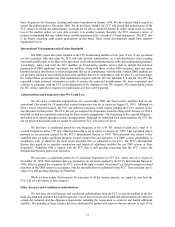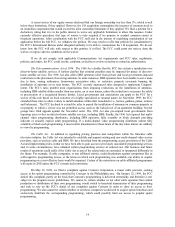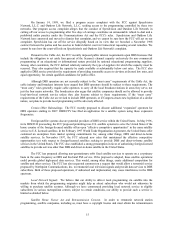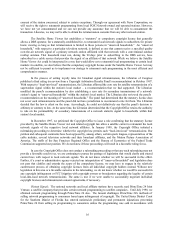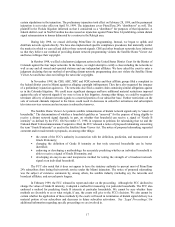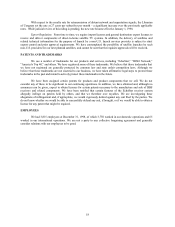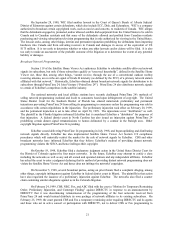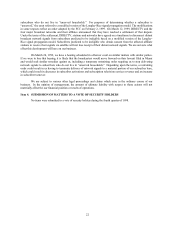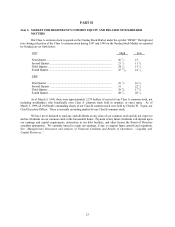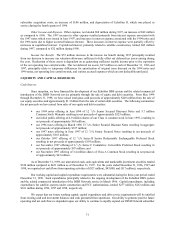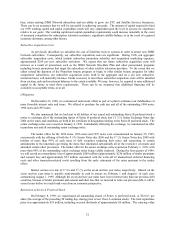Dish Network 1998 Annual Report Download - page 24
Download and view the complete annual report
Please find page 24 of the 1998 Dish Network annual report below. You can navigate through the pages in the report by either clicking on the pages listed below, or by using the keyword search tool below to find specific information within the annual report.22
subscribers who do not live in “unserved households.” For purposes of determining whether a subscriber is
“unserved,” the court referred to a modified version of the Longley-Rice signal propagation model. The modifications
in some respects reflect an order adopted by the FCC on February 2, 1999. On March 12, 1999, DIRECTV and the
four major broadcast networks and their affilates announced that they have reached a settlement of that dispute.
Under the terms of the settlement, DIRECTV, stations and networks have agreed on a timeframe to disconnect distant
broadcast network signals from subscribers predicted to be ineligible based on a modified version of the Longley-
Rice signal propagation model. Subscribers predicted to be ineligible who obtain consent from the affected affiliate
stations to receive their signals via satellite will not lose receipt of their distant network signals. We are not sure what
effect this development will have on our business.
On March 24, 1999, we have a hearing scheduled in a Denver court on similar matters with similar parties.
If we were to lose that hearing, it is likely that the broadcasters would move forward on their lawsuit filed in Miami
and would seek similar remedies against us, including a temporary restraining order requiring us to stop delivering
network signals to subscribers who do not live in “unserved households.” Depending upon the terms, a restraining
order could result in us having to terminate delivery of network signals to a material portion of our subscriber base,
which could result in decreases in subscriber activations and subscription television services revenue and an increase
in subscriber turnover.
We are subject to various other legal proceedings and claims which arise in the ordinary course of our
business. In the opinion of management, the amount of ultimate liability with respect to those actions will not
materially affect the our financial position or results of operations.
Item 4. SUBMISSION OF MATTERS TO A VOTE OF SECURITY HOLDERS
No items were submitted to a vote of security holders during the fourth quarter of 1998.


